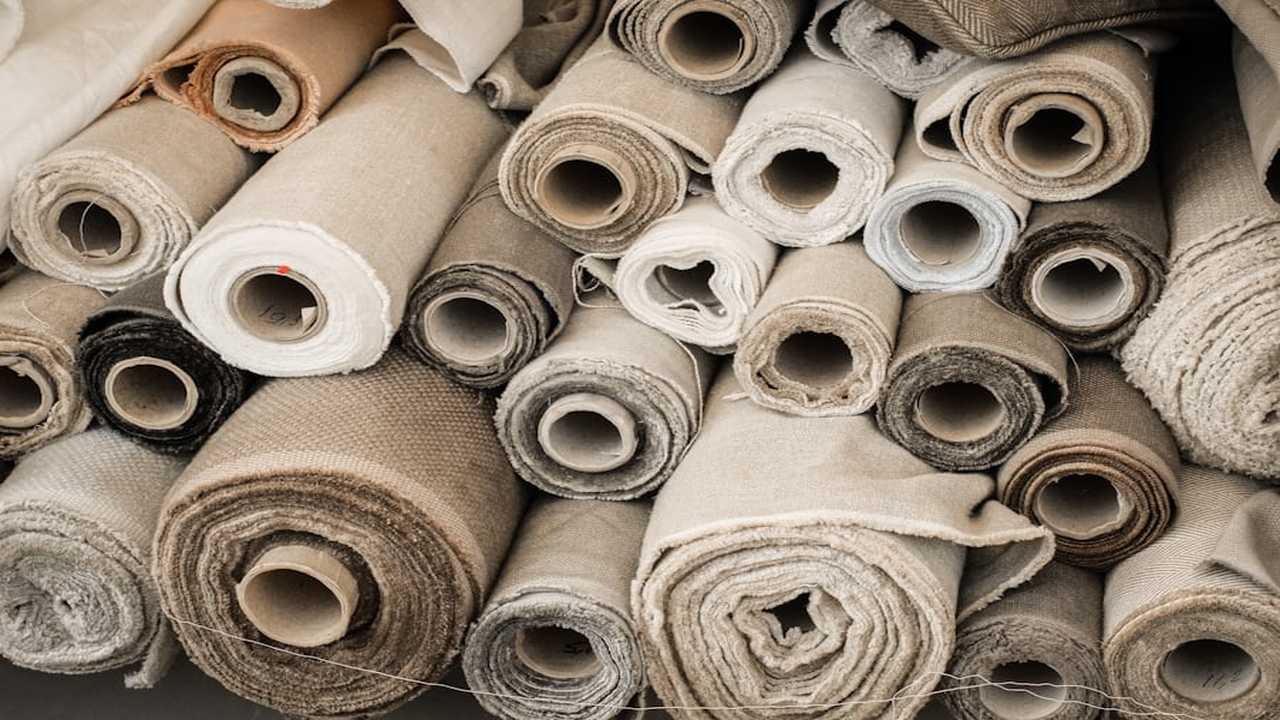 In the fast-evolving landscape of sustainable materials, Circulose and TextileGenesis are revolutionizing traceability in the apparel industry. By integrating cutting-edge tech, they are paving the way for brands to achieve full transparency in their circular material supply chains. From Circulose's innovative use of textile waste to Arvind's commitment to scaling sustainability, this article delves into the latest collaborations shaping the future of materials sourcing and production.
In the fast-evolving landscape of sustainable materials, Circulose and TextileGenesis are revolutionizing traceability in the apparel industry. By integrating cutting-edge tech, they are paving the way for brands to achieve full transparency in their circular material supply chains. From Circulose's innovative use of textile waste to Arvind's commitment to scaling sustainability, this article delves into the latest collaborations shaping the future of materials sourcing and production.
Revolutionizing Traceability in the Apparel Industry
In the fast-evolving landscape of sustainable materials, Circulose and TextileGenesis are at the forefront of revolutionizing traceability in the apparel industry. By integrating cutting-edge technology, they are paving the way for brands to achieve full transparency in their circular material supply chains. Circulose, formerly known as Renewcell, stands out for producing its namesake material from 100 percent textile waste, such as worn-out jeans and cutting floor scraps. This innovative approach not only reduces textile waste but also ensures a more sustainable sourcing process for the fashion industry. Through their partnership, TextileGenesis is enabling Circulose to embed traceability seamlessly into its solution offering, making it easier for brands like Tommy Hilfiger and Calvin Klein, distributed by Arvind, to track the journey of every kilo of regenerated material from pulp to final product.
Scaling Sustainability through Strategic Partnerships
Arvind Limited, a major player in the global textiles industry and a distribution partner for renowned brands like Tommy Hilfiger and Calvin Klein, has taken a significant step towards scaling sustainability by partnering with Circ, a textile-to-textile recycler. This five-year commitment involves purchasing lyocell staple fiber and polyester chips from Circ, derived from recycled polycotton textile waste. By integrating these next-gen materials into its large-scale apparel manufacturing operations, Arvind is not only enhancing its sustainability credentials but also offering high-quality, circular fiber solutions to its brand partners. This strategic move aligns with Arvind's commitment to the future of sustainable fashion, as highlighted by Abhishek Bansal, the company's senior vice president of sustainability.
Driving Innovation in Material Development and Application
Modern Meadow, a bio-design company, is driving innovation in material development and application through its next-generation material, Innovera. This material, made from sustainable sources, is being showcased in various applications, including an exclusive black bucket seat for a Mercedes-Benz car. Partnering with companies like Heller-Leder and Helcor-Leder-Tec, Modern Meadow is expanding its reach into different industries, such as automotive, lifestyle, and interiors. By positioning Innovera as a versatile material that can adapt to diverse creative and functional visions, Modern Meadow is not only demonstrating the potential of sustainable materials but also fostering collaborations that push the boundaries of traditional material sourcing and production. The launch of an online shop during an international leather trade fair signifies the company's commitment to engaging designers and brands in co-creating custom materials for new product innovations.
Promoting Circular Economy Practices and Sustainable Alternatives
Rheom Materials, a next-gen startup, is promoting circular economy practices and sustainable alternatives through collaborations with brands like LuckyNelly. By offering Shorai, a next-gen leather alternative with a significantly reduced carbon footprint compared to synthetic leather, Rheom is showcasing the potential of biomaterials in the fashion industry. The recent auction of the Black Orchid Bag, made from Shorai, in support of flood relief efforts underscores the company's commitment to social and environmental causes. This initiative not only highlights the value of sustainable materials in luxury products but also emphasizes the importance of supporting communities in need through innovative and eco-friendly solutions.
Embracing Sustainability as a Business Imperative
The collaborations and initiatives within the sustainable materials sector reflect a broader trend of companies embracing sustainability as a business imperative. From Circulose's commitment to providing full traceability to Arvind's strategic partnerships for scaling sustainability, the industry is witnessing a shift towards more transparent and eco-conscious practices. As brands like Tommy Hilfiger and Calvin Klein integrate next-gen materials into their supply chains, the narrative around sustainable fashion is evolving. This shift not only responds to consumer demand for ethically sourced products but also positions companies like Arvind as leaders in driving positive change within the textile industry. By prioritizing sustainability and innovation, these companies are setting new standards for responsible sourcing and production, shaping the future of materials sourcing and manufacturing.
Conclusion
The landscape of sustainable materials is undergoing a profound transformation, with Circulose and TextileGenesis spearheading a new era of transparency in the apparel industry. Through innovative collaborations and strategic partnerships, companies like Arvind are scaling sustainability and driving positive change within the textile industry. As brands like Tommy Hilfiger and Calvin Klein embrace next-gen materials, they are not only meeting consumer demand for ethically sourced products but also setting new standards for responsible sourcing and production. This shift towards sustainability as a business imperative not only showcases the potential of eco-conscious practices but also emphasizes the crucial role of companies in shaping a more sustainable future for materials sourcing and manufacturing.